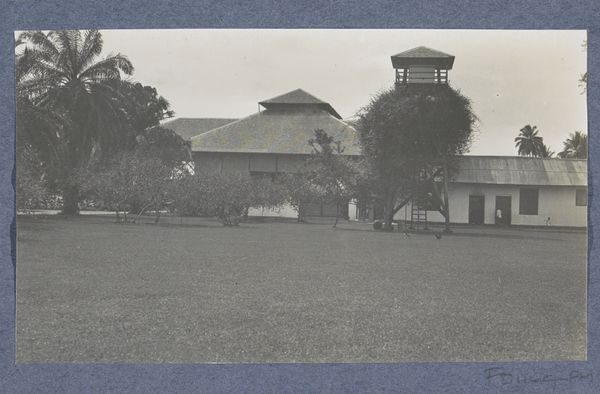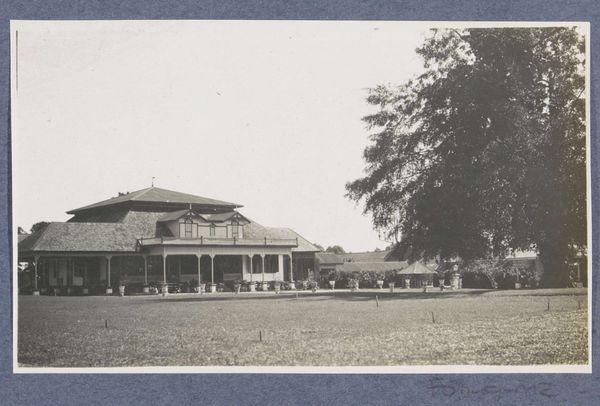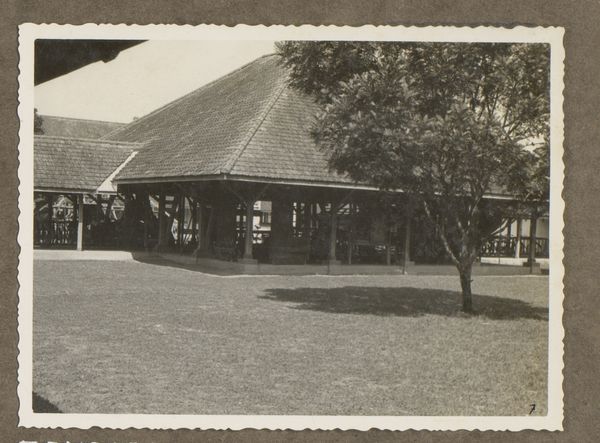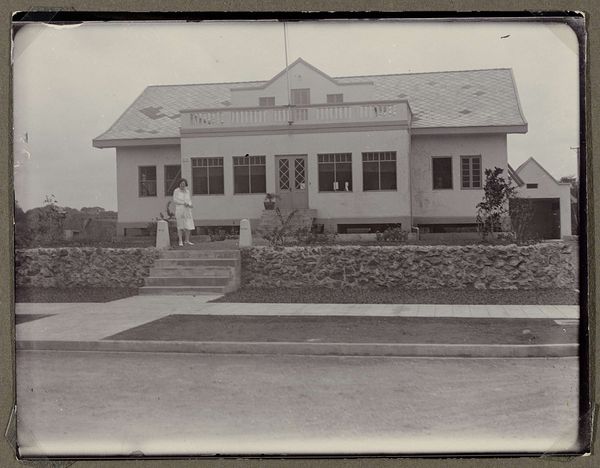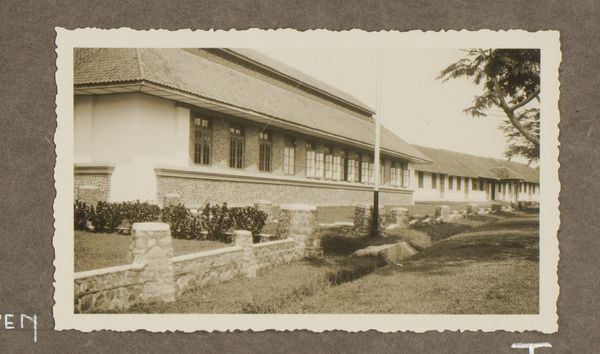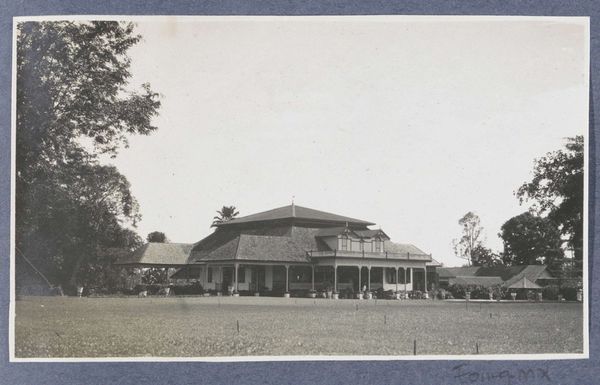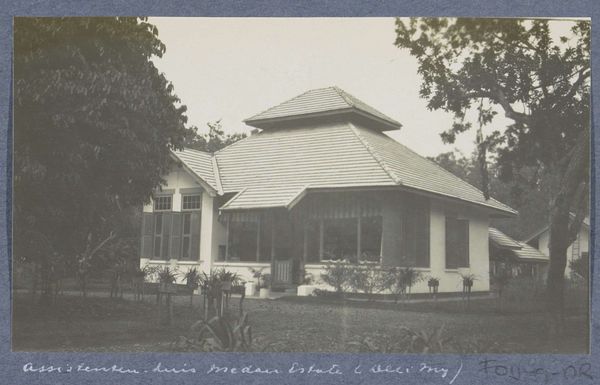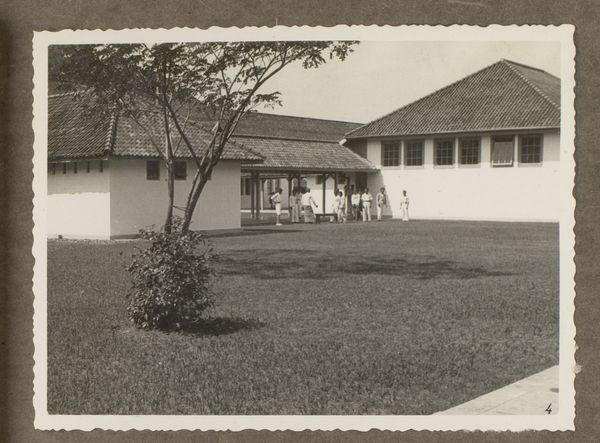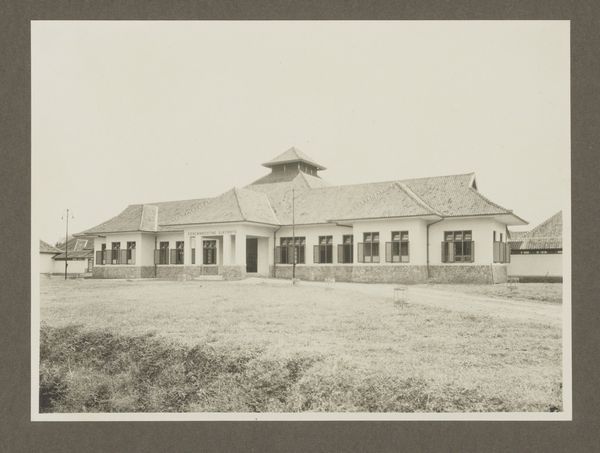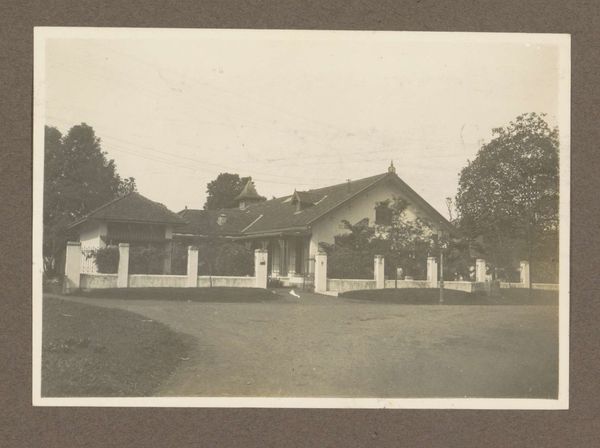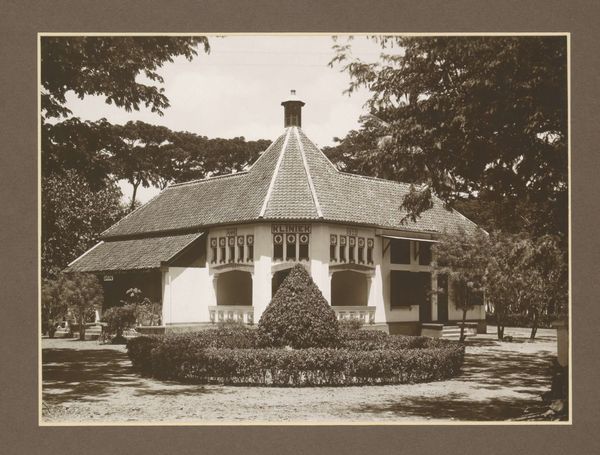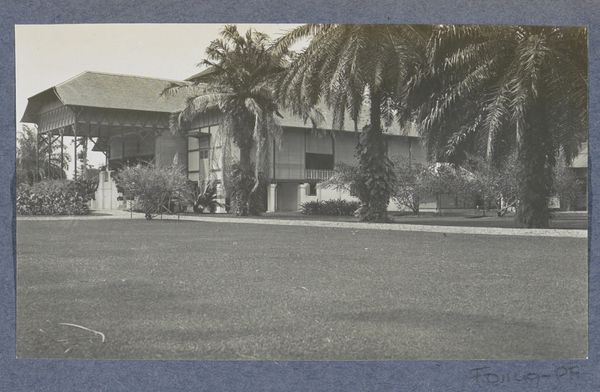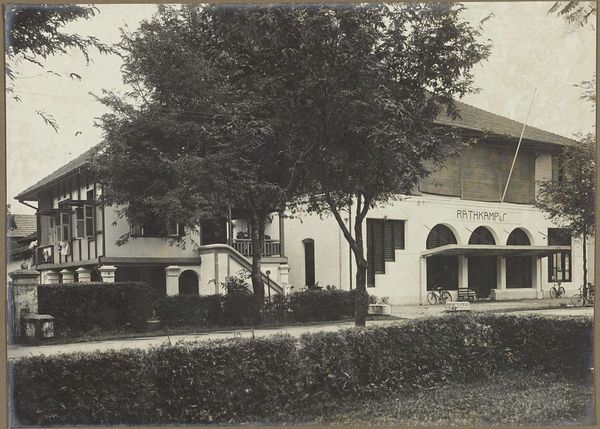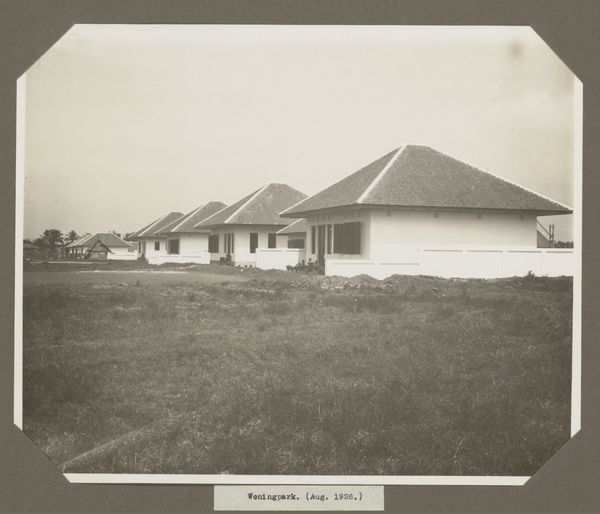
Exterieur van het huis en de tuin van de inspecteur van de Deli Maatschappij te Bindjai Langkat op Sumatra c. 1900 - 1920
0:00
0:00
anonymous
Rijksmuseum
photography, architecture
#
garden
#
landscape
#
photography
#
architecture
Dimensions: height 81 mm, width 139 mm
Copyright: Rijks Museum: Open Domain
Editor: So, this is a photograph titled "Exterieur van het huis en de tuin van de inspecteur van de Deli Maatschappij te Bindjai Langkat op Sumatra," which translates to "Exterior of the house and garden of the inspector of the Deli Company in Bindjai Langkat, Sumatra." It's from around 1900-1920. The grand building almost fades into the soft landscape in this black and white image. What aspects of its cultural context or the way it was made strike you most? Curator: It is difficult to miss that this is more than a simple photo, it is an assertion of power. Here we see a company inspector's residence and garden during the colonial era of Sumatra. It invites consideration of who controlled the means of production here? How does this building demonstrate this access and control, visually and materially? Editor: It's a sharp contrast between the manufactured, orderly architecture, and the, what looks to me, more wild surroundings. It definitely speaks of dominance. Curator: Precisely. The photograph itself becomes part of this apparatus, a documentation, and almost a trophy, showcasing colonial achievement. We see not only the architecture, which is likely made from materials and resources extracted locally and by local labour, but the "garden" – a space that is controlled, and arranged to the standards of the colonizer, right? Can you see how photography serves here as a tool for asserting colonial authority? Editor: It's really clear. By capturing this manicured space, they were in essence capturing control itself. Everything here becomes about how materials were accessed and the labor involved in crafting this image of power. This makes me think of the labor involved with resource extraction... and the photo is a product of that as well. Thank you. Curator: Absolutely. Analyzing the work from this perspective offers deeper understanding of how it intersects with global power dynamics and social narratives, as the materials are arranged for maximum impact for whom?
Comments
No comments
Be the first to comment and join the conversation on the ultimate creative platform.
